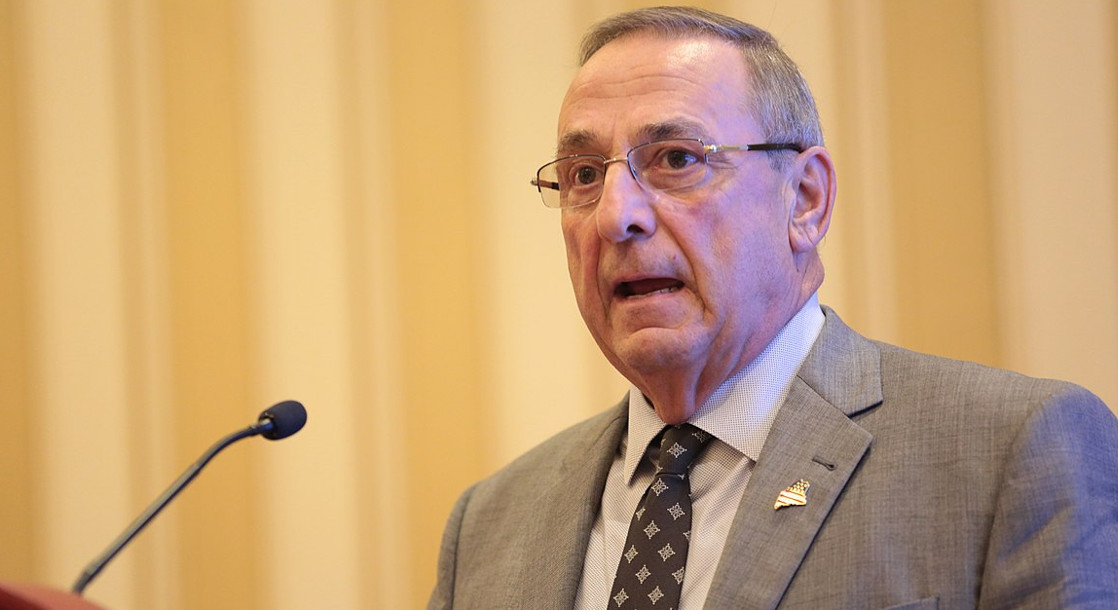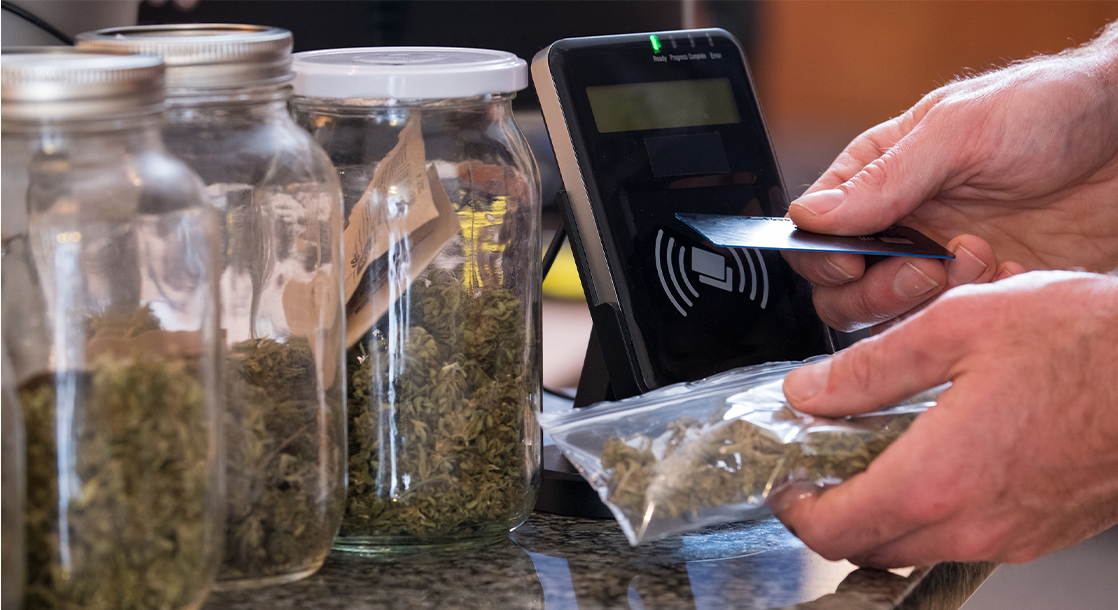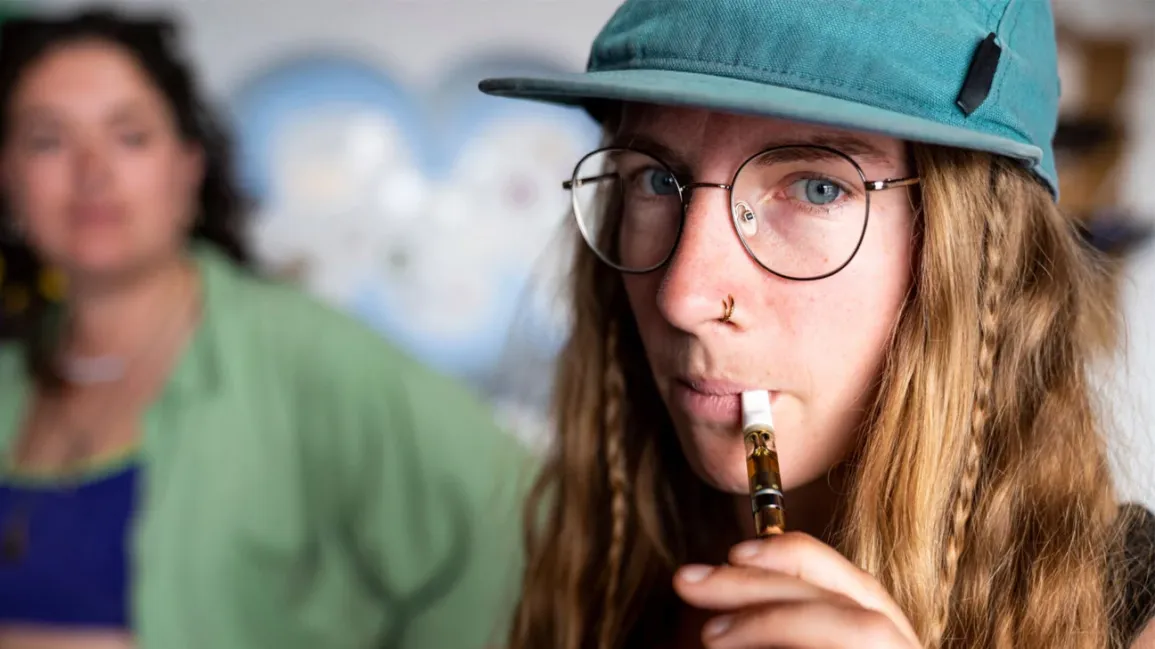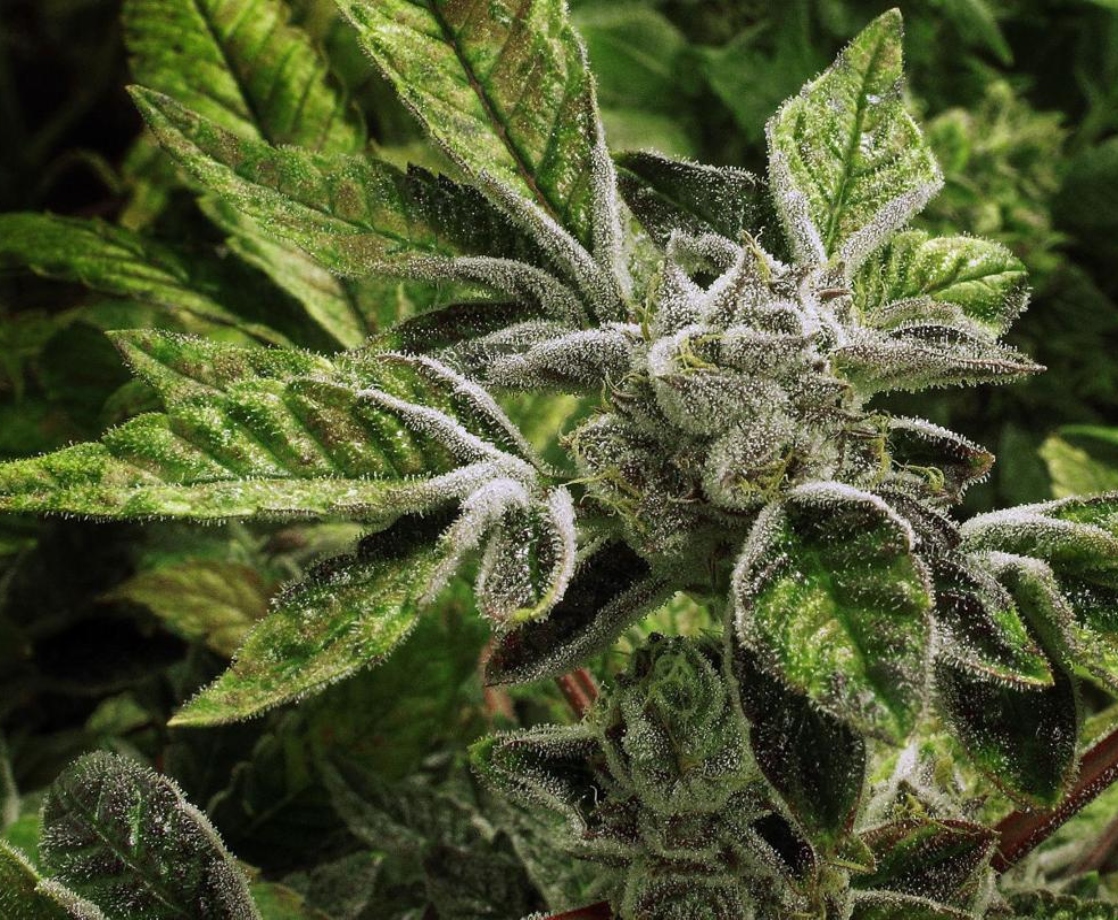Photo via Wikimedia Commons
On Friday, tea party Republican Gov. Paul LePage vetoed the most recent version of Maine’s bill to legalize sales of recreational (or adult-use) cannabis. This is the first time in U.S. history that a governor has vetoed a state recreational marijuana bill initiated by voters.
“We call on the legislature to override this ill-advised veto,” writes David Boyer, the former Maine political director of the Marijuana Policy Project, in a statement to MERRY JANE. “Seven other states have passed legalization initiatives over the past five years,” he continues, “and none has seen this type of obstructionism from its Governor.”
Boyer led the campaign for Question 1 alongside Maine-born activist Paul McCarrier. In 2015, the two men proposed two dueling legalization bills, but they buried the hatchet when Boyer dropped MPP’s bill and joined McCarrier’s effort for what was dubbed the homegrown “farmer’s bill.” The farmer’s bill eventually became Question 1.
LePage has openly opposed full legalization, believing marijuana to be a “gateway drug.” However in 2014, he pledged he would support legalization if it passed by a popular referendum. Last November, Question 1 won by a hair, with 50.3 percent of voters voting “Yes,” prevailing by about 4,000 votes.
Over the last year, LePage leveraged this nearly 50/50 split as part of his justification for a veto. He also claims — in a written statement released Friday — that he arrived at this decision after consulting with U.S. Attorney General Jeff Sessions and Colorado Gov. John Hickenlooper. Maine legislators and lobbyists say LePage has not directly consulted with any of them on the issue.
In February, Sessions reversed the U.S. Department of Justice’s “hands-off” policy established under President Obama, stating that so long as marijuana remains illegal under federal law, he would not recognize state-level legalization efforts. Later this year Sessions pushed the House Rules Committee to block a vote on the Rohrabacher-Farr amendment — which protects state medical marijuana programs from federal interference — to the 2018 federal spending bill. However he hasn’t yet enacted any raids or crackdowns on state-legal pot operations.
Gov. Hickenlooper has maintained a lukewarm perspective on legalization. Although he opposed Amendment 64, the Colorado law that legalized recreational sales and launched a multi-billion-dollar industry, he faithfully signed it into law in 2012 as “the will of the people.” His stance toward legal weed has softened over the years, but he still cautions other states against legalizing in a “risky” manner.
LePage’s statement added that Hickenlooper “urged that we take the time necessary to get our law right from the start and not rush just to get something in place.” He went on to cite marijuana-related (but inconclusive) traffic fatality statistics from Colorado, as well as an uptick in violent crime, without mentioning that Colorado’s population has swelled immensely over past years. According to U.S. Census Bureau data, Colorado’s population grew by over 100,000 people from 2014 to 2015. From July 2015 to July 2016, another 91,000 people became Colorado residents. But that explosive growth trend began four years before the state launched its first commercial cannabis sales, having grown by over 400,000 people between 2010 to 2015.
Colorado state data also shows that, regardless of Colorado now being the second-fastest growing state in the nation, the rate of traffic fatalities per capita has remained steady since 2005.
Regardless of LePage’s veto, adults 21 and over may still grow and cultivate recreational cannabis for personal use. The veto will indefinitely suspend regulated commercial sales for marijuana unless the legislature can override the governor’s veto by a two-thirds majority.











